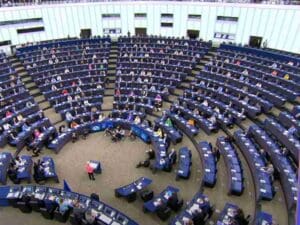
A new study released by global communications technology firm Nokia and GSMA has found that coupling renewable energy and artificial intelligence (AI)-enabled energy management is vital to helping the telecommunications sector reduce emissions and achieve decarbonisation goals.
The majority of communications services providers (CPS) surveyed by Nokia and GSMA state energy efficiency is either ‘very important’ or ‘extremely important’ to their digital transformation and climate action programmes.
Up to 83% of surveyed CPSs say energy efficiency is a key focus in network transformation over the coming years. With technologies such as 5G coming into the picture, 67% of CPSs say energy costs might rise over the next three years.
Other factors including increased television and movie streaming, video conferencing from remote working, and online gaming are also increasing the demand for energy.
This means telcos will be forced to deploy more data centers, which require more energy capacity to be able to store, process and manage data from various applications.
Nokia and GSMA say AI will be critical to optimise energy management for telcos as the demand for both energy and the internet increases.
By leveraging AI in energy management, telcos are able to ensure the consumption of energy across their network is managed quickly with less human intervention, in line with changes in energy demand and internet use, according to the statement.
Have you read?
AI trends shaping distributed energy integration
Greek transmission operator modernises grid communications with Nokia
AI key to unlocking a just energy transition – WEF
EU consumers hesitant to adopt AI products and technologies
Despite the growing need for AI-enabled energy management processes, many CPSs say they are still in the planning stage for technology deployments. However, nearly 50% said they expect to achieve energy savings of 10% to 20% over the next two years as AI energy solutions are rolled out and optimised, highlighting the increased focus on energy management within the telco sector.
Beyond curtailing energy demand, AI-powered energy solutions are expected to drive other important outcomes, such as reducing the number of on-site visits personnel have to make to troubleshoot network issues.
Volker Held, Head of Marketing for Managed Services, Cloud & Network Services at Nokia, said: “Reducing its carbon footprint is an important challenge for the telecommunications industry, given rising internet traffic trends and its implications for energy consumption. This research from Nokia and GSMA underscores the shared concerns of our industry and the variety of solutions and services that Nokia is working on with communication service providers to address this shared responsibility. AI solutions hold the promise of realising quick and substantial energy efficiency gains and ensure we fully live up to our environmental and social responsibilities.”
Tim Hatt, Head of Research and Consulting at GSMA Intelligence, added: “AI has clear and tangible benefits to improving the energy efficiency of telecom networks and is a big part of the solution in driving sustainable 5G networks. It’s important to deploy AI early in order to train the algorithms and continually optimise network ops and costs over the long run.”
The study is based on the response of some 103 CPSs.
Find out more about the report.








